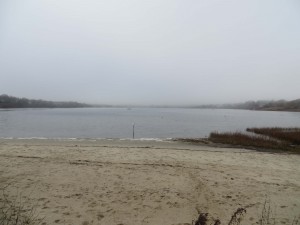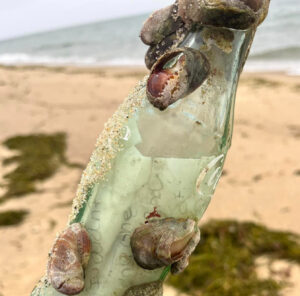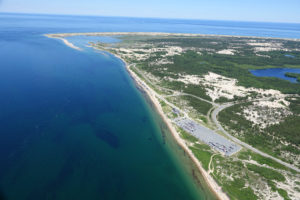 CHATHAM – The town of Chatham has issued a Request for Proposals for a feasibility study to look into the viability of deploying a barrier to protect swimmers from sharks at Oyster Pond Bathing Beach.
CHATHAM – The town of Chatham has issued a Request for Proposals for a feasibility study to look into the viability of deploying a barrier to protect swimmers from sharks at Oyster Pond Bathing Beach.
The Board of Selectmen asked town staff to look at barrier options for the beach and Director of Natural Resources Dr. Robert Duncanson is seeking study proposals from the consulting community to evaluate various technologies.
Oyster Pond Beach, also known as Children’s Beach, is located at the head of the Stage Harbor estuarine system.
“It is a fairly heavily used swimming beach in the summer,” Duncanson said.
“It’s where the town conducts swimming lessons. It’s pretty popular for families and small kids because it is at the head of a small estuary so it is pretty well protected.”
Concern for swimmer safety is high due to increased sightings of seals in Oyster Pond, which could attract shark activity.
The feasibility study will evaluate issues such as suitability of a shark barrier for the location, design, availability, material, installation, inspection and maintenance requirements, ecosystem impacts, impacts on other uses, permitting and costs.
Feasibility study proposals are being accepted through March 11.
Duncanson said town officials hope the study could be completed in time to procure a barrier for the summer.
“The main issue that may hold up something this summer, and we really won’t know until the feasibility study is completed, would be permitting,” Duncanson said.
The area falls within Wetlands Protection Act jurisdiction and would require state and local permits if a physical structure would be anchored to the bottom.
“Until we know exactly what various technologies might be feasible, and each one of those may have its own permitting timeline, we won’t know for a fact whether or not we can get anything in place for this summer,” Duncanson said.
Duncanson said he had done some research to look into several different technologies, including physical barriers, magnetic poles, and artificial kelp forests.
“We are kind of aware of what is out there and what has been tried in other areas,” he said.
The site specific study is expected to compliment the larger study that is underway and is examining a broad range of possible shark attack mitigation strategies.
That study is funded by towns on the Lower Cape, Cape Cod National Seashore, Atlantic White Shark Conservancy, and a grant from the Cape Cod Commission.
The larger study follows two shark attacks on Cape Cod late last summer off the Outer Cape.
A Revere man, Arthur Medici, was killed in September after he was bitten by a shark off Newcomb Hollow Beach.
Another man from New York was bitten in Truro in August and survived.
“Our [study] is a much more site specific look,” Duncanson said. “But we will definitely keep in touch and share whatever we get and I know they will be sharing whatever they get.”
Duncanson said the town hopes to turn around the submitted proposals for the study quickly.
“Once we’ve got someone on board to do the work their report has to be completed within 45 days,” he said.
























